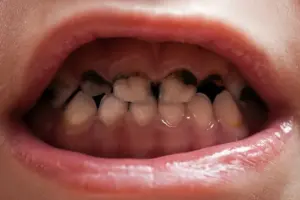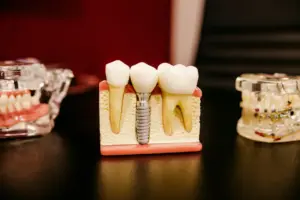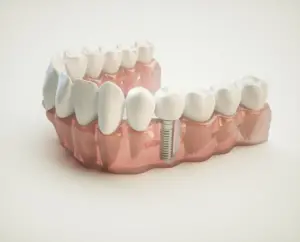How Are Oral Health and Heart Health Related?
Table of Contents
ToggleFor a healthy, active and long life, it is important to maintain your oral health and heart health. Recent evidence suggests that exercise and eating well are mentioned often when discussing heart health. Oral health could also play a part in preventing heart disease. A healthy, clean mouth can have a huge impact on the quality of your life.
Most people believe that brushing and flossing is enough to maintain their oral health. Regular dental cleanings and cosmetic treatments can improve oral health for everyone. Regular preventative and diagnostic dental services will improve the health of your gums, teeth and overall quality of life.
Recent studies have shown a possible connection between heart health and oral hygiene. Medical research is always evolving. This article will help you learn more about the connection between your heart and teeth.
Relationship Between Oral Health and Heart Health
Recent studies have shown that there may be a link between the heart and teeth. experts have found that inflammation caused by gum disease may precede heart conditions such as strokes and heart attacks. One study showed a link between heart disease and tooth loss. This suggests that one could contribute to the other.
Science shows that your mouth and heart may have a greater connection than you thought. Even though more research is being conducted to investigate this evidence, taking care of your mouth is more important than ever. Heart Disease is the leading cause of death in America. We must do everything we can to prevent this. It only takes a few moments a day to take care of your mouth. This can reduce your risk of developing heart disease.

Bacteria from the Teeth to the Heart
Mouth bacteria is one theory that explains the link between heart disease and tooth decay. If bacteria from food are allowed to remain on your teeth for a long time, they can cause gum disease and periodontitis. According to the theory, bacteria that enter your gums will then find their way into blood vessels. These blood vessels then travel through the body to return to your heart. Bacteria can cause blood vessel inflammation and heart attacks, as well as strokes.
Inflammation can also cause heart problems. Your immune system creates inflammation when it detects bacteria in your blood vessels and gums. Chronic inflammation can cause heart attacks and strokes. Long-term inflammation can cause blood vessel irritation, which leads to plaque formation. Plaque can loosen and lead to blood clots that can block an artery leading to the heart or brain, causing a heart attack or stroke.
Keep your teeth and gums clean to prevent the spread of inflammation and bacteria, which is good for your body and heart. Exercise, heart-healthy eating habits, weight management and quitting tobacco are all ways to prevent inflammation. These prevention methods will help you maintain a healthy heart, body and smile.
The Effects of Smoking
Research suggests a connection between heart disease and oral health, but the cause could be another factor. The third factor that could contribute to heart disease and teeth problems is smoking. Smoking increases the risk of heart disease. This is because smoking causes plaque to build up in your arteries. Plaque can cause heart attacks, strokes, and heart attacks.
Oral cancer and tooth decay can be caused by smoking, chewing tobacco, or using it. Smoking can cause serious health problems as you age, including damage to your teeth, gums, and lungs. can be caused by e-cigarettes and vaping. Smoking-induced plaque, gum disease, and tooth decay could all contribute to heart disease. Smoking and poor oral hygiene can lead to heart problems.

You should care for your teeth, whether there is a link between heart disease and your dental health or if another factor such as smoking causes both heart and mouth issues. Quitting smoking will help you prevent heart and gum issues. Quitting smoking will also improve your oral and overall health.
Take Care of your Teeth
You must start caring for your teeth if you want to avoid heart disease and bad teeth. Poor dental hygiene may lead to gum disease, tooth decay, bad breath, and oral infections. Regular tooth care will keep your heart healthy, and your teeth happy. You can save money on dental and medical costs by investing in your mouth.
American Heart Association (AHA ) recommends that you brush your teeth twice daily for two minutes to reduce your risk of cardiovascular diseases. You should also floss daily, in addition to brushing your teeth regularly and attentively, to prevent gum disease. You should be aware of the signs of gum diseases and take good care of them to avoid further problems.
Gum disease can cause:
- Sunken teeth
- Loose Teeth
- Receding gums
- The Bite Change
- Gums that are bleeding and tender
- Sensitive tooth
- When chewing, you may experience pain
- Gums that are red and swollen
- Constant bad breath
Regular dental cleanings and checks of the gums are important. A qualified dentist will be able to evaluate your teeth and look for early signs of gum diseases. Early detection of gum disease will make treatment easier. Cleanings are important to prevent gum disease, and tooth decay and keep your smile bright.








